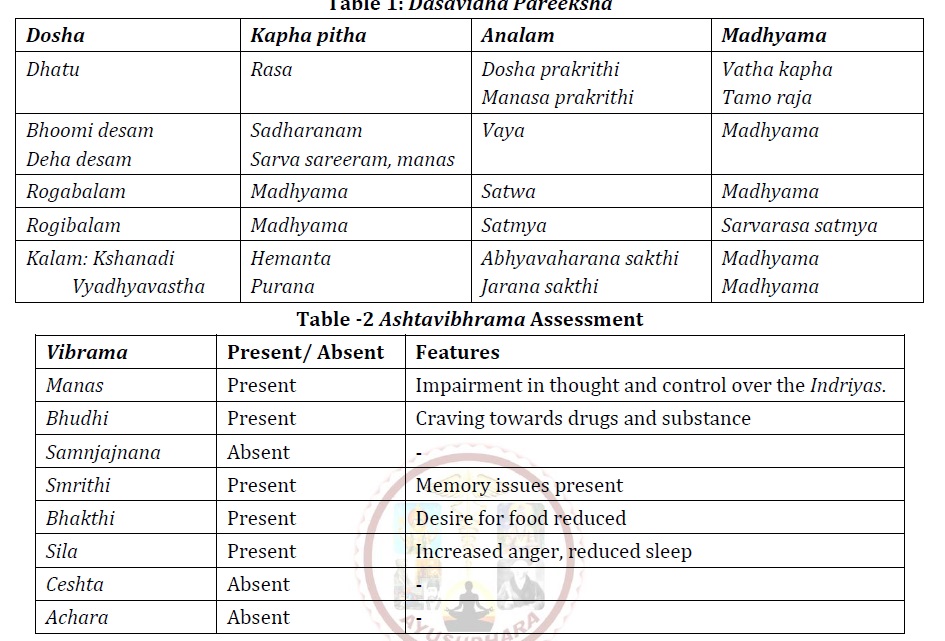Ayurvedic Management of Anxiolytic Withdrawal Disorder - A Case Report
DOI:
https://doi.org/10.47070/ayushdhara.v10i3.1245Keywords:
Anxiolytic use disorder, Anxiolytic drugs, Unmada, Ayurveda treatment.Abstract
Anxiolytic drugs are a valuable tool in the management of mental disorders, but inappropriate use can cause serious harm. The continued use or misuse of drugs is also termed "substance use. Overuse causes intoxication and withdrawal symptoms. The 12-month prevalence of DSM-IV sedative, hypnotic, or anxiolytic use disorder decreases as a function of age and is greatest among 18 to 29 years old (0.5%) and lowest among individuals 65 years and older (0.04%). The prevalence of sedative, hypnotic, or anxiolytic withdrawal is unclear. A 54 year old male heavily using anxiolytic drug named Lopez MD 2 for 2 years presented in Government Ayurveda Research Institute for Mental health and hygiene with symptoms of seizure attack for the first time 2 days back: He got aggressive at that time with increased sound making and incontinence of urine and grinding of teeth. He had decreased sleep, self talk, anger, crying spells since 2 months. The signs and symptoms were correlated through Dosha assessment. The patient mainly presented with the signs and symptoms of Pitha, which include anger and reduced sleep, and Kapha, which includes mood liability and slurred speech. He was treated at IP level treatment with Ayurvedic internal medicines and 21 days Panchakarma treatment. The Panchakarma treatment includes Sadyovirechana, Sirodhara, Snehapana, and Virechana. There was significant improvement in his symptoms anger, crying spells, self talk with significant change in sleep quality index through Pittsburgh sleep quality index.
Downloads

Downloads
Published
Issue
Section
License
Copyright (c) 2023 AYUSHDHARA

This work is licensed under a Creative Commons Attribution-NonCommercial-ShareAlike 4.0 International License.


